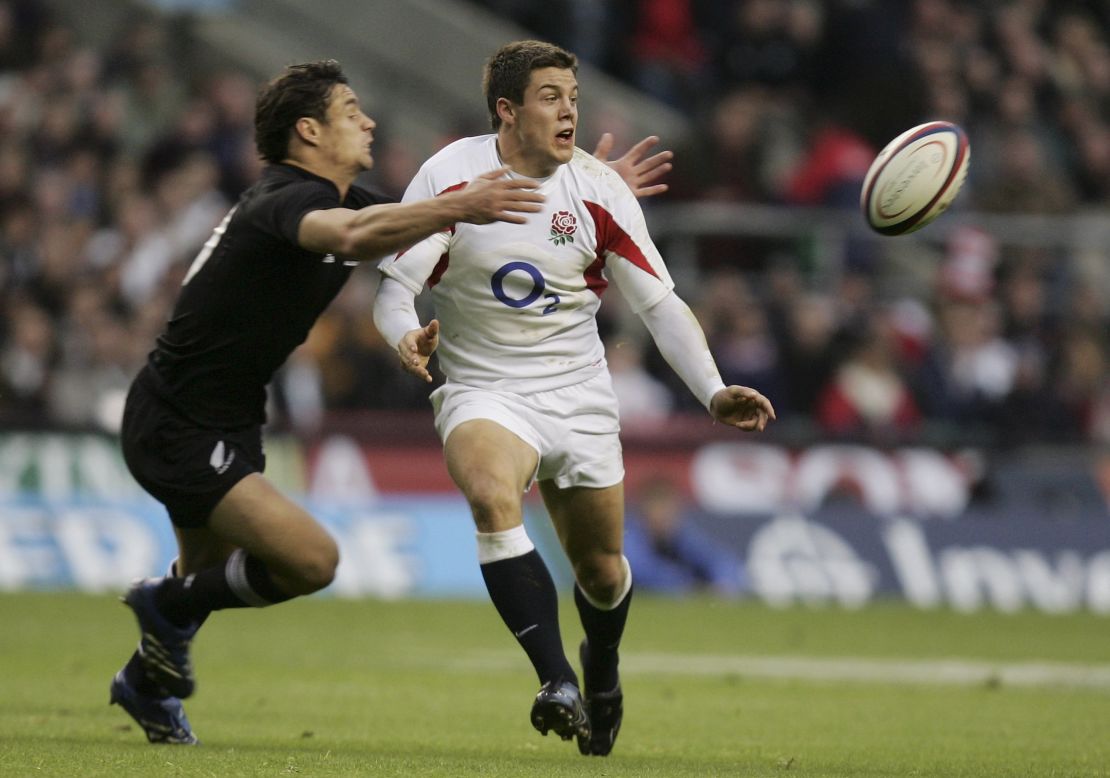There’s a famous photo of England rugby player Billy Vunipola as a school boy.
Sat beside teammates half his size, Vunipola cuts a substantial figure. Think he is only 10 or 11 years of age, and the mind boggles.
Today, perhaps unsurprisingly, the 130kg wrecking ball holds rank as one of the world’s best players.
But next to Vunipola, a slip in comparison, is Harry Robinson. Robinson went on to play for Wales before calling time on his rugby career aged 23 after a serious neck injury.
The grainy photo sheds light on some of the dilemmas with rugby at youth level. In a sport where size matters, there can be a temptation to earmark a future superstar based on physical bulk alone.
There are over 10,000 children between the ages of 13 and 16 in the Developing Player Programme run by the RFU, England Rugby’s governing body. Of that number, an average of 65 each year are handed contracts by professional clubs when they leave school at 18.
Young people develop at different rates, so the talent pool is kept broad.
At a week-long under-16 rugby festival in the grand, leafy setting of Wellington School, 60km outside London, that philosophy holds: 420 aspiring stars of the sport from 14 regional academies have been brought together with, as far as the RFU is concerned, an eye on the future.
Wellington Festival: The best young talent in English rugby
There’s no emphasis on talent spotting here at Wellington. This is about team and individual development, an experience “we don’t think the players could get anywhere else,” according to the RFU’s Head of Academies Don Barrell.
“We’re working with an age where people are beginning to think they can see some traits of long-term potential, but we definitely don’t know who’s going to be playing in the Premiership.” Barrell, a former English Premiership player himself with Saracens, tells CNN.
“Some of the guys might have had a really quick rise as early physical developers; some may be catching up, and some may have hung in because they have the behavioral traits.
“The whole space is very unclear in terms of knowing who’s going to progress, hence the big numbers here.”
READ: The former US rugby captain turns to WWE
READ: Beyond the bars – how rugby is reforming Italian prisoners
Family affair
On top of training and matches, there’s an off-pitch emphasis at Wellington Festival, too – on how these 15 and 16-year-olds interact with each other and develop the personal traits required to become better rugby players.
Over the course of the week, the players are taught to fend for themselves, be it packing kit bags, eating the right food, or learning what not to post on social media (a media-savvy barrister has apparently trawled their accounts.)

Then there’s schoolwork, which isn’t allowed to fall by the wayside. With GCSE exams looming, the players “will have way more time this week revising than anything else,” Barrell explains.
For the two match days, parents come to watch. But they don’t escape the lecture hall, either. A professional parent coach is hired to give advice on supporting their son during his rugby career.
The week, in short, is about far more than just playing rugby.
The deep end
The RFU is investing time and financial energy in its rugby talent and, at the highest level, has also developed a method of giving young players experience.
Marcus Smith was 18 and only just out of school when he was first included in the international squad as an apprentice. It’s a system started by coach Eddie Jones that sees young players, although not available for match selection, train with the elite.
“It’s about right opportunities for the individual,” says Barrell. “There is no one path to that level, everybody’s path is different.
“There is an amazing amount of time and detail spent by the clubs and by the union discussing each individual as an individual. If it’s right for you, it’s right for you … We can’t treat everyone the same.”
International exposure from a young age is something Anthony Allen, now a youth coach with England and Leicester Tigers, knows about. First caps don’t get much more daunting than New Zealand aged 20.

“Looking back on it now, I wasn’t ready. I was very young,” Allen, taking time between coaching the Tigers side at Wellington Festival, tells CNN.
“But I was playing well and enjoying my rugby. It was like I was on a train and I just kept going with it. I didn’t know when it was going to stop or when I was going to end up getting off. It was going well and I was never going to say no.”
Tragically for Allen, his England career was short-lived. His second and final cap came against Argentina, just a week after his debut.
READ: Last-gasp heroics in Singapore see Fiji lead championship
READ: Springbok legend bids goodbye to ‘game made in heaven’
‘Big commitment’
A knee injury forced Allen to retire aged just 28. He has since been earning his stripes as a coach and was attending Wellington Festival for the third time.
“One thing I’ve learned is that if you give a young player a chance you’ve got to give him 10 chances,” says Allen, “to see if he’s ready or if he’s not going to be good enough, and ultimately to get the most out of it in the long run.
“This festival is the biggest thing some of these players do in their rugby careers. Some will go on to play top end rugby and look back and say ‘that was nothing,’ but for some this is it … you’ve just got to enjoy the moment as much as you can.
“It’s a big commitment for a young lad. They’ve got to manage themselves with their schooling, and they might also be good at music, or theater, or there might be another sport they’re good at. It’s very individual.”

Allen and Barrell both admit that youth development in English rugby has changed considerably since they were playing.
For example, there used to be England fixtures at under-16, but now the earliest age for international honors is 18: “There is no guarantee that what you do at 16 you’ll still be able to do later,” Barrell explains.
The road to the international stage is a long one, with perhaps 10 or 15 years between players entering academies and earning their first England caps.
In that time, they will grow and develop at different rates; some might fall out of love with the game, and some might find their love elsewhere. England Rugby is acutely aware of this.
Visit cnn.com/rugby for more news and videos
“These players have a lot going on in their lives,” says Barrell. “Quite often we as adults don’t understand it. The world moves really quickly at that point, and we’re trying to address that.”
















